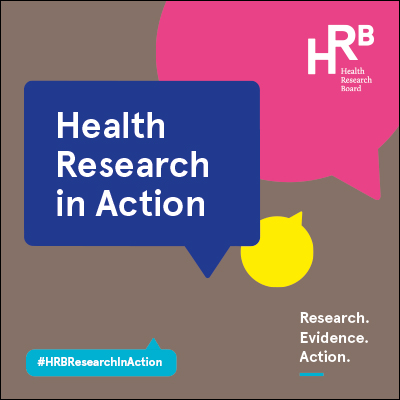HRB publishes Health Research in Action
A new HRB publication, Health Research in Action, provides a snapshot of some of the many great discoveries and outcomes we produced and supported across various health sectors in Ireland.
3 min read - 10 Dec 2020

A total of 89 funding awards worth €26,500,000 were completed in 2019, and the research made a real difference to people’s health, the health system, society, and economy. Some key results include:
- 134 influences on policy or practice (e.g. new clinical guidelines, policy reports)
- 67 new methods or materials (e.g. assays, databases, training materials)
- 31 healthcare innovations (e.g. medical devices, therapies or interventions)
- 337 engagements with public bodies and media
- 79 instances of public and patient involvement (PPI) in research awards
Welcoming this publication, Dr Mairead O Driscoll, Chief Executive at the Health Research Board, says:
“The COVID-19 pandemic has put a stark focus on the importance of health, particularly its interconnection to society and economy. It has also highlighted the value of health research. And while the race for better treatments and vaccines understandably dominates the headlines, this report also describes the important work in countless other areas of health that’s still carrying on quietly, but no less successfully, away from the spotlight.”
Health Research in Action summarises 25 such success stories, all illustrating the wide-ranging impact of the HRB on health and social care in Ireland. For example:
- HRB-funded analysis by the Economic and Social Research Institute (ESRI) provided detailed evidence of where non-acute services are in Ireland, and how they can alleviate pressure on hospitals. These findings influenced policy, notably the provision of greater resources for home-care services
- A Royal College of Surgeons Ireland (RCSI) project funded by HRB created animations to help young people, as well as parents and educators, identify and work through mental health difficulties, attracting more than 16,000 views online
- A Trinity College Dublin study funded by the HRB showed how a tailored nutritional and activity programme can benefit patients undergoing chemotherapy for pancreatic cancer
- A project funded by the HRB at Dublin City University (DCU) has worked with young people with Type 1 diabetes and their parents to design new family-based support, which is ready for testing at Children’s Health Ireland in Temple Street
- An HRB study reviewing vaccine injury redress schemes in 11 jurisdictions to explore what makes rapid compensation more likely was the first study of its kind, and found lowering the burden of proof can expedite such compensation
Health Research in Action also distils each of the 25 success stories into user-friendly tweets we’ll be posting over the coming days, and we invite everyone to join the conversation and share these successes, all of which align with the HRB’s vision: ‘Better health through excellent research, data and evidence.’
Read the full report, Health Research in Action, and join the conversation on Twitter @hrbireland, #HRBResearchInAction. Thanks to @claireoconnell and all the researchers for helping us produce this publication.
3 min read - 10 Dec 2020



